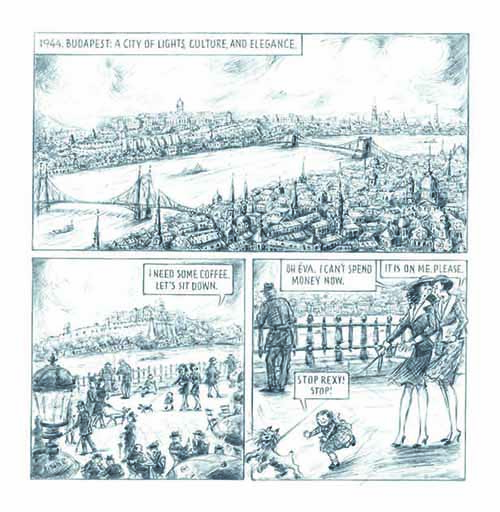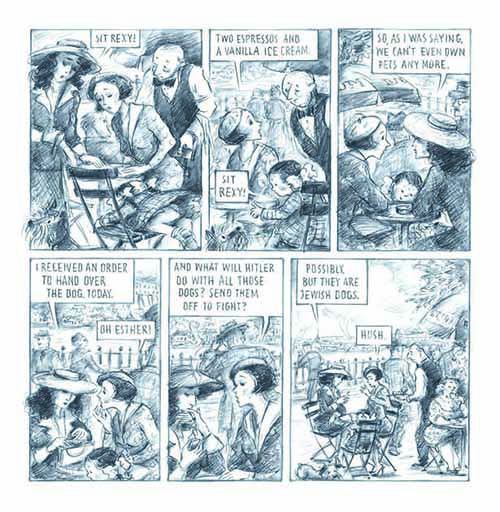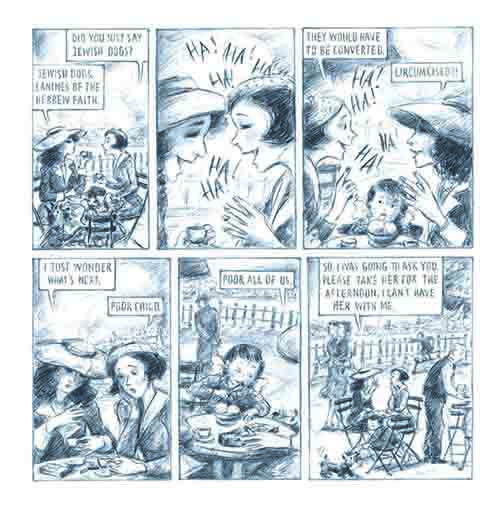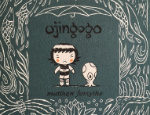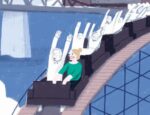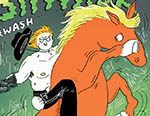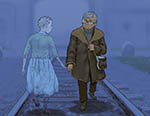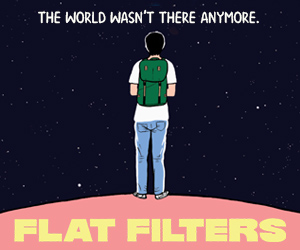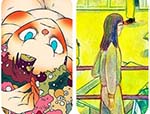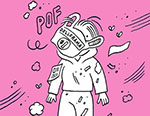It has been a little over 15 years since Hungarian-born American artist Miriam Katin’s award-winning memoir We Are on Our Own (the story of Katin and her mother’s escape from persecution as Jews in German-occupied Hungary during World War II) was published, and a paperback edition is finally out this month. On the one hand, it seems as if this ought to have appeared years ago. On the other, it is an appropriate time given the world in which it will appear.
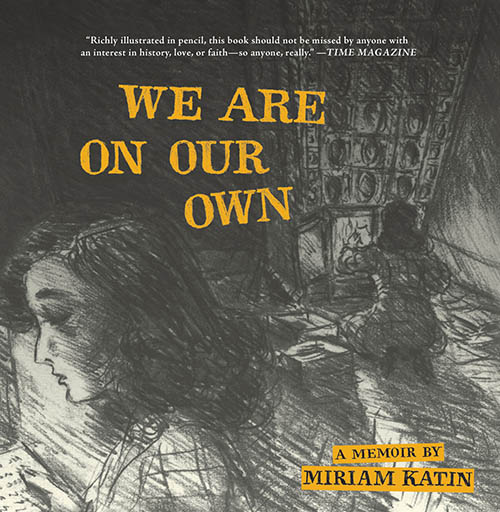
In January 2022, the McMinn County School Board in Tennessee voted to ban Maus, Art Spiegelman’s Pulitzer Prize-winning graphic novel about the holocaust, from its library. It was the latest in a series of efforts by conservative officials across America to limit the type of books children should have access to. There are eerie echoes of these divisive conversations in Katin’s work, rooted in the crisis she and her mother escaped from.
We Are on Our Own can be treated as a masterful memoir, which it is, a brutal tale of survival that can only be effectively told by someone who has lived through something harrowing. To treat it only as a historical record is dangerous though, because it allows us to imagine that its world has receded from view. That approach blinds us to similar forces gathering force around us today. This is a memoir meant to act as a warning, a wake-up call as important today as it was during World War II.
We emailed Miriam Katin about her work, and how she feels about today’s America. Here are her responses.
BROKEN FRONTIER: It has been a little over 15 years since We Are on Our Own appeared. Has your struggle with faith, that you have referred to a few times in the past, altered in any way since?
MIRIAM KATIN: I am afraid I made that “struggle” more dramatic and important than it ever was. So, to tell the truth, I am quite comfortable with my lack of faith.
BF: There is a brutal honesty in your work that can sometimes be misinterpreted as dramatic, presumably by critics who still struggle to accept how horrifying our collective history can be. How do you respond to that kind of criticism?
KATIN: I respond as my mother did and would. Nobody can imagine what it was like to be in the situations we were in, unless you were there. In my book about her I tried to imagine, really imagine, how she must have felt. The fear.
BF: Your tools of choice have evolved over the years, from pencil to Photoshop. What are you most comfortable working with these days, and why?
KATIN: I still love pencil and I use Photoshop only to clean up.
BF: You have spoken of the influences of Art Spiegelman on your work. How do you react to Maus being banned by the Tennessee School Board a year ago?
KATIN: I always say, Art Spiegelman gave me the “permission” to tell my story. As for banning the book, I am not looking at this as “banning”. Often, while raising my children, I felt that the school had thrown these subjects to the kids too soon, too brutally. Too soon.
BF: We Are on Our Own acts as a warning that, in many ways, appears to be ignored by successive generations. How optimistic are you about Generation X’s ability to learn any lessons from history?
KATIN: Well, you have to be a certain age and maturity to “learn lessons” from history. It has to be handled with great care, so the whole story doesn’t just come off as an interesting tale. It was a great help to have actual survivors while they lasted.
BF: You were once the oldest employee at MTV. Did your time there inspire your personal work as an artist in any way?
KATIN: Me and another woman my age, a German/American Freya Tanz, also married an American. I thought the honesty and vulgarity of the work was very inspiring.
BF: You have referred to America as being the most welcoming country. Has that opinion changed since We Are on Our Own was first published, in the light of how divisive it appears to be today, from an outsider’s perspective?
KATIN: I still think it is a great country, as there are so many different opinions and actions allowed. I hope that largely the good will win.
Interview by Lindsay Pereira





